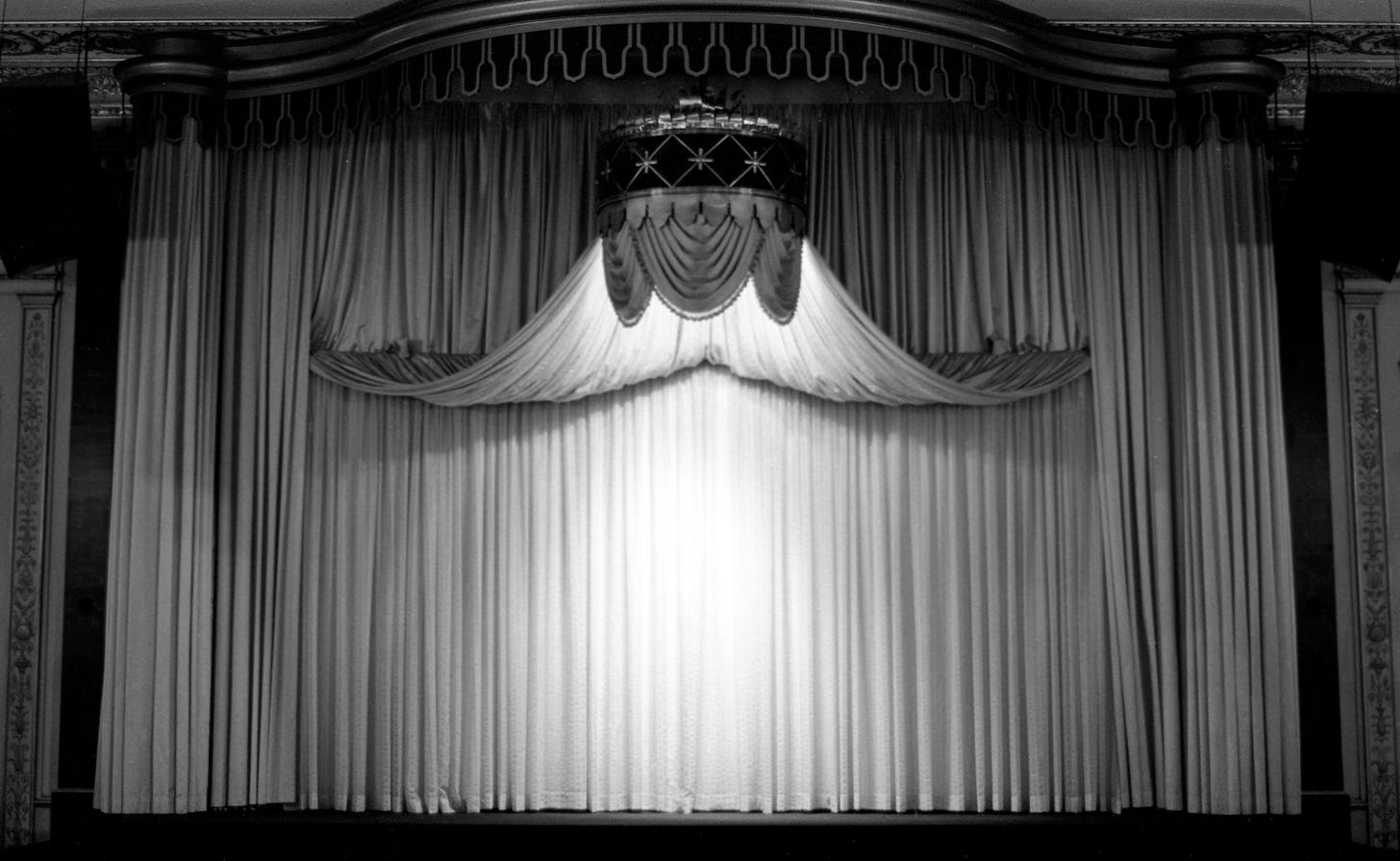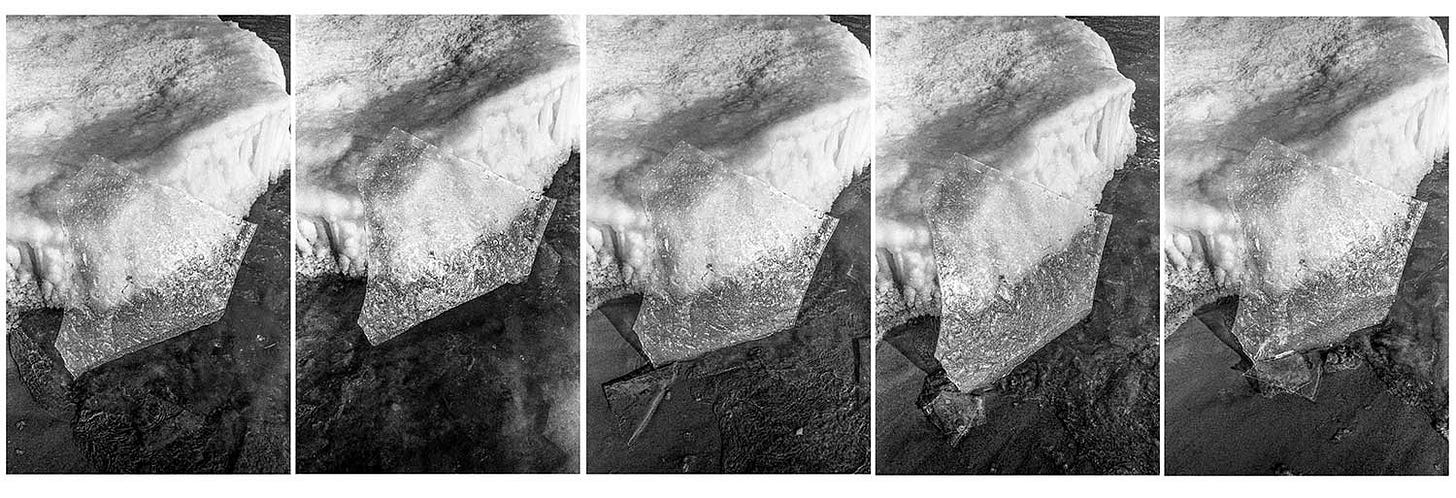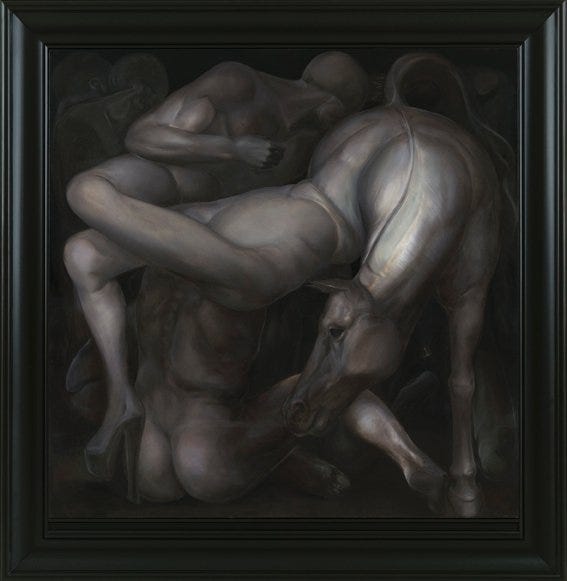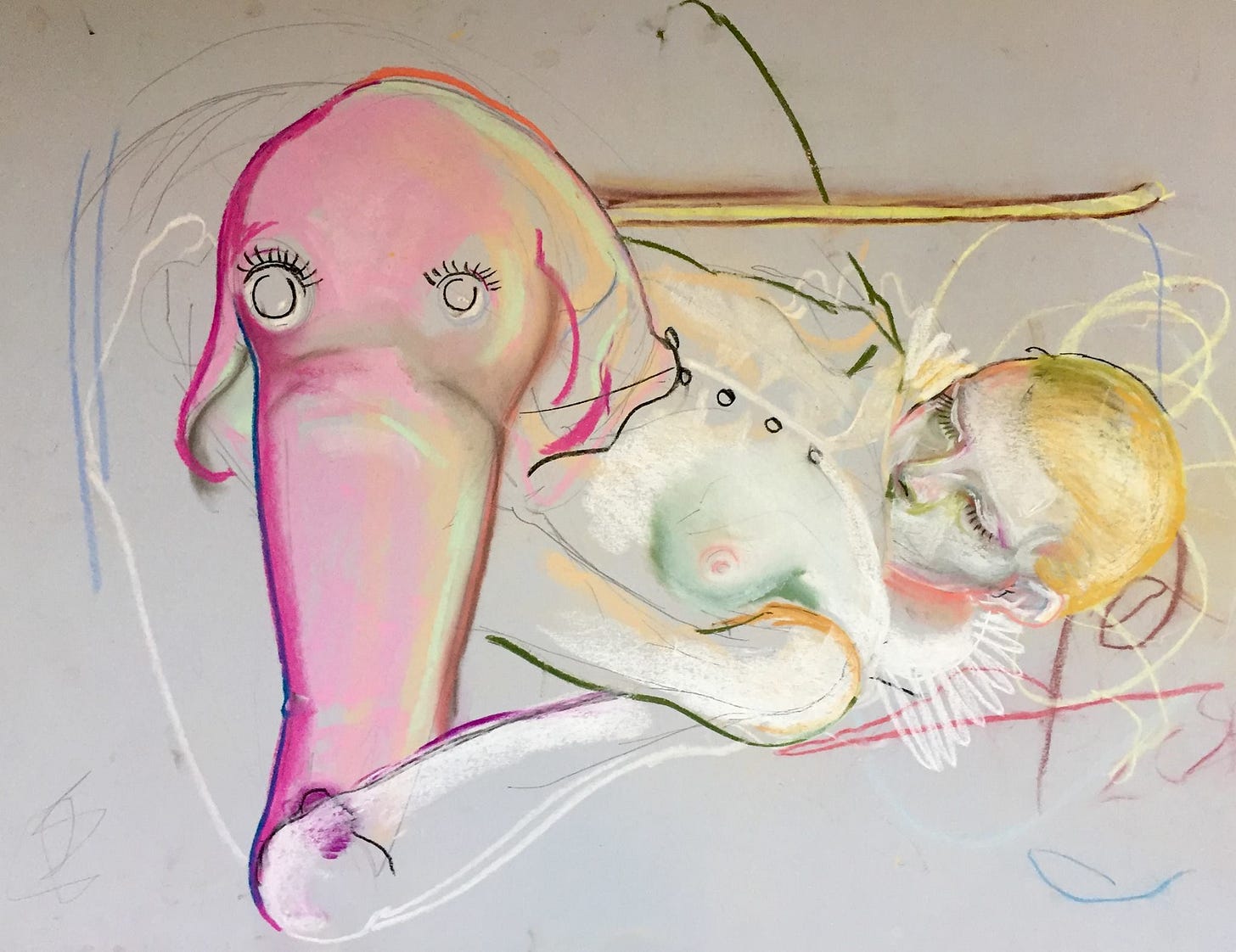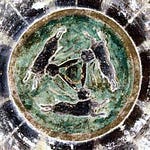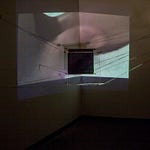Along with free speech is the important aspect of allowing people to see things the way they do. That is to open up the mind instead of inform it, and box it, with a neat little label. This is one of the reasons I appreciate the visual and sensorial realm more than the often coined nature of text or commodity market sloganeering playing upon the way words can be read, interpreted and digested in several ways.
I see it as a responsibility when creating something to be ultra-careful to knowing this will affect someone topographically as well as tomographically. Sure, there is a superficiality to a flat plane, a screen, or the face-value of any thing. The reality I have experienced from life is always deeper and more peculiar. I believe, and could be wrong of course, is that everything does penetrate us deeply. I’m not wanting to incite the victim mentality of the often written about subliminal programming here. I write today assuming you are intelligent, or are at least sharing with me in the attempt to find out new understandings. And while the thingliness of understandings can become a bit Platonic in the mind please note, if the cultural references feel like I’m not speaking to you… I am. So many times I have to look up things when I read, this extra action is not a given nor taken for granted but rather simply encouraged here on Le Lapin.
The responsibility on readers seems only higher as verifying structures and knowledge sources become re construed with the internet. It’s not as if a new mind is being born but that new subconscious is emerging through the mentalisation. Depending on the type and source of stimulus I wonder how many people ask themselves: do I look that thing up, do I verify that source, do I go check that out to make sure it’s accurate or not? The internet, like capitalism, has become a convenient alibi for both risk avoidance and risk taking. I’m not here to pathologize risk taking either, I had thought the age of the internet would have made people more cooperative, interested, agile and playful: but I have experienced quite the opposite. There is a growing and overwhelming need to shut-it-off.
My friend, Francesco, pointed out: A.I. is great at a first draft, but the real work is in the revision. That is where he descried the art, not artifice, is made. I appreciate this perspective a great deal. In terms of rigor and tradition, such as any cultural artifact that has been passed through generations instead of landed in a garbage heap, I fear a great deal of art made today might be worth doing again, or at least looking at again and again to see what was missed.
This looking again quality was something Richard ascribed to the Melodi series. At first it seems like nothing. Over time something starts to happen.
This slow emergence is something I have a personal faith in. Because I have not had faith in something anyone told me to do, or told me to believe; and I have been told by former friends very loudly: BELIEVE! BELIEVE! IT’S ALL IN YOUR MIND; SO JUST BELIEVE! If this was the case, everyone could think themselves into the life they want to live. The thing is, if anything actually worked like that, you run the risk of becoming a puppet to someone else’s designs or image via having your free-will hijacked or subtlety denying your personal choice to cohere with someone for the sake of the relationship, friendship, collegiate, professional, personal, or otherwise. This fear-based behavior I can empathize with well as it can take so many years to build up enough internal pressure to pursue one’s internal desires to raise a personal view instead of a tribal or group belief into a conversational context. This "personal voice” can quiet itself in the presence of cancel-culture or even a family or social group. I remember jumping into grad school feeling like jumping out of an airplane into the Pacific. For one, I’m afraid of heights, and two I prefer ground transit despite always wanting flying cars to become real. In retrospect, I did not let myself feel how terrified I was until after, because now I realize I’m in way over my head; this subjective feeling of liberated letting go and opening up to see what life outside of the Modernistic box offer, I can still cling to, though I try to in lesser degrees now.
In an landmark experience in Paris, I recall people hating the Montparnasse monolith I loved because it helped me locate myself in an unknown place. Indeed, the modernist structure did not fit in with the rest of the detailed and weathered beauty. As the essence of a particular worldview of life: life being about learning versus lessons. Such a small difference has been a huge space making conceptual tool: to make life is about lessons has been to lessen the “I” of notions, creating more breathing room and less mind-weight. The fun and sometimes painful challenge of this view is the insistence on an “I,” or social demand for an ego to navigate the world with. Yes, there is someone home…an essence within, but what is that could be easily condemned or damned or stuck if forced to become containable or obtainable. This is why people cannot morally be trapped or owned by anyone. And while we know this, people still engage in this behavior all the time, buying books on how to trap a mate, or how to win likes or be influential. It all makes me gag for fresh air!
The deep lesson-ing in unconscious behavior pattern recognition based on a social and culturally constructed ideal were seriously reformed after moving to Scandinavia. The situation was not a product of my childhood traumas as the internet psychology would make people believe, and the things people say I cannot nod along with. Becoming a bobble head for the sake of social cohesion seems riskier than remaining neutral: though that embodiment can often incite exclusion from insecure groups or individuals. Of course people want to know what they are dealing with when faced with another human who is both animal and supposed to be exercising some free-will. What people are capable of can be wonderful and horrific…and I mean that objectively. There are certain observable behaviors that seem to be, albeit ascribed from theological texts, to be accepted as true and good. Then there are the spiritual warriors that assert mind over all emotional and physical matters, as higher beings. The risk of that latter group, who are not always in cults, not always into new age, is the denial of the body.
I feel that this is what has given rise to yoga workshops throughout the world. As much as I love exercise, I do tend to think in a Western way that every single body ought to decide for themselves what form they want to take on. This is a very self-fulfilling idea that would not fly in collectivist or tribal societies expecting certain people to look, behave, or be a certain way.
The internet, as David Ulansey offered, has been perhaps the most significant influencing change in human’s experience of life (today). The internet made it possible for us to become aware of the odd range and depth of synchronicities our separate lives shared. We had never been aware of each others’ existence, nor a shared and specific idea to create wooden plaques of "truisms” that have their opposite written in Latin. Our modern art project might seem like we should hide it until it became public or finished. And while sure someone could lift this idea, the thing is most ideas, as the state of photography and A.I. show us, already exists. Therefore, the details of the project make it art in a playful way. The potential for invention then comes not from knowing, or God-complexes that seem to reinforce themselves as too often common in artists throughout histories, but collaborations inviting a remembering of the creativity of the curious mind, children inhabit. So while the Internet constructs a grand archive and record of human activity, the one thing we can all work for is to explore with curiosity the ideas we believe to be true, by remembering the technology as a tool and means to reach people and knowledge we could not otherwise.
David continues to be among many dedicated professionals that inspire me, to point out the hazards in my personal tendency toward enthusiasm. This excitability can often be misunderstood; outside of an academic or scientific research context as pure idiocy or worse: lunacy. The other extreme would be to cling so tightly to ones theories and beliefs that life itself pulls in on itself, as the drawings (or artworks) of Thomas Sænger evoke.
David was one of the first to be kind enough to instead of pat me on the head, but point out misquotes or word ordering. I felt lucky for feedback because anyone just simply cheering me along isn’t really helping me improve. And after grad school dumped me back into the world confused and full of the post-modern word salad approach, I found serious research more fortifying.
His research on the ancient Mithras culture pivoted back into the tendency to do deeper rabbit hole researching…these are the kind of tunnels that lead to exploding mental pictures, often described as ‘world views’. The potential for a theory or idea to be wrong has turned out to be more creative and generative. This is my main position when it comes to how and why I persist to create in the face of the perceived risks of perishing. My method is not scientific, though I appreciate the form and formality quite a lot…the method is rooted in a pursuit of understanding and the greater hurdle I seek to overcome, which is to get the work in a conversant forum.
There are a number of challenges posed by the Internet, quick click culture that leave a lot to be desired for realizing the greater overview picture humanity so deeply needs to escape from the tunnel-vision of green-washed and political propaganda.
Whether or not you appreciate the essays of Umberto Eco combined in Chronicles of a Liquid Society, or have an interest in The Painted Word by Tom Wolfe, realized the significance of Barthes, Death of the Author, I do hope and invite you to consider: the future is yet to be created.
As a distant colleague illuminated to me this morning, while the polymath (often misnamed as ADHD) can see patterns and recognize them before others, the recent rush on Artificial Intelligence may seem like a fad, but will have a deep ripple effect on energy and agriculture as well as logistics that I am positive on the business end but wary of on the human relational end. We already see humans drifting deeper into individualism; it’s as if we are preparing ourselves for space. Human relationships already seem awkwardly strained such as witnessed by the sci-fi films…deep relating might be for soil based societies, whereas the imminent threat of entropy ripping apart a spacecraft might make the personal duty a higher priority than deep relating.
The other socially distancing aspect of the net is the extensive deployment of assumption and great expectation, the combination a perfect receipt for personal fantasy and social disaster. A commonly used example, a great number of internet searches will return different results depending on the user. To remember each person is having a very different experience on the other side of the screen is something that seems obvious in technology as both a hurdle and tool toward deeper relating. We both get closer and further to understanding. So long as conclusions are not rapidly drawn, positive change is possible, but it may require some deep breathing exercises.
As we continue to live in varied relations to the unknown: where we want to know, or want to believe that we know, that lack of curiosity tends to produce:
1. self fulfilling prophecies
2. people in compartmentalized boxes based on identity
3. producing game theory of real human life
4. conspiracy theorists
5. ______________________continue on as you wish, contributions welcome!
I often wonder if writing imposes greater threat and value to the unspoken that is lost on the internet: body language, because that language ends up being there either way. In absence, space, quiet, or loud, the words that were said or written ricochet off the caverns of our mind, creating circuits through the body as emotions. A truly blank mind, as I have witnessed is similar in vulnerability to become from the outside-in, instead of the inside-out as horrifying as it is to be attempted to interpret.
The conversation about intelligence has been rife with landmines…not because it is actually dangerous to have an intellectual discussion but because such endeavors involve multiple layers of being including ego, personality, affectations, desires and projections. The multilayered reality is one I got to experience more directly when I put down my camera. When I was living in pure photography modus, I was always an observer…physiologically distanced from the social dynamics because my job was to frame expose what was there. Experiencing social interaction without the lens in front, did not remove this built in observing apparatus that was heightened in a quiet loud through journaling and meditation. These are activities useful and widely used in the past, and those which I hope are not lost to the Internet age.



